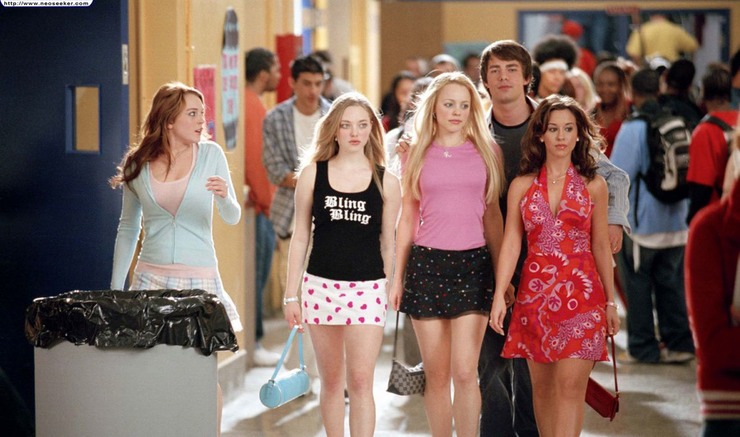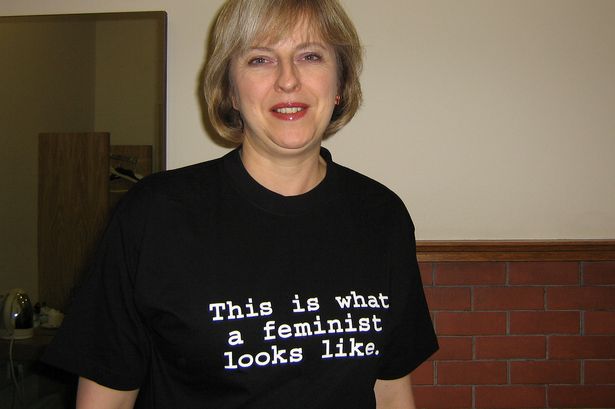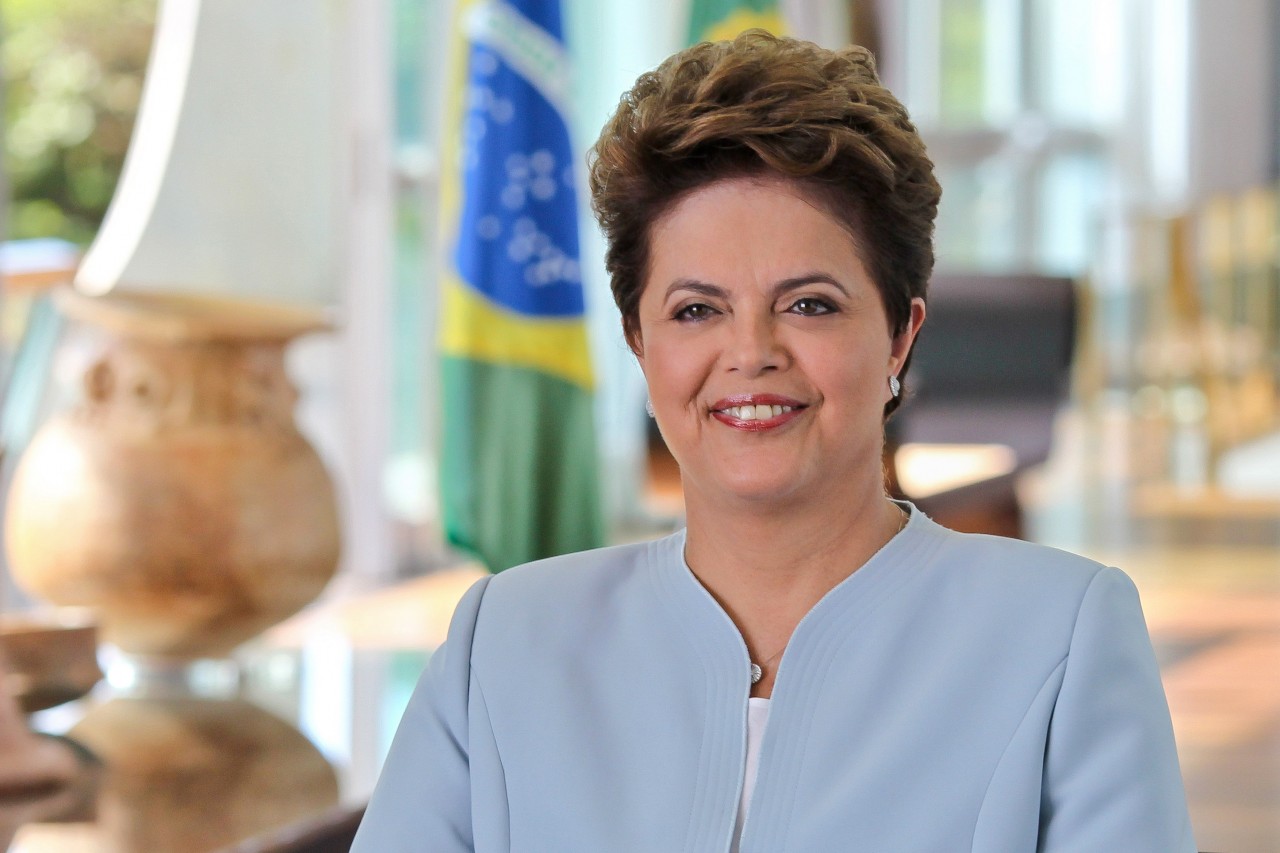
Do women in power actually make life better for women?
It seems that whenever a woman achieves a position of political power, people celebrate how great things are about to become for women. But is that true? Does having women in politics make ordinary women better off? We looked at some of the most powerful female leaders in politics right now to see whether women in power really do make a difference.
Angela Merkel

Who's she?
She’s been the Chancellor of Germany - the fourth largest economy in the world - since 2005. She’s seriously influential within the EU as a whole. Quite the political powerhouse then. But when it comes to women, how’s she used this power so far?
What’s she said?
Angela actively rejects the label ‘feminist’. She also tends to downplay women’s issues or gender equality, like the time in 2012 when she said:
"I don't think men have it easier than women these days. Fathers who take paternity leave have to fight against the same kind of stereotypes as women did."
And what’s she done?
Well, in her first 10 years as Chancellor, she didn’t address any woman’s issue in isolation in any significant way.
But in 2015, when Germany was hosting the G7 summit, Merkel strongly stated that a priority for the summit must be to tackle women’s opportunities to participate in economic life (that is, to get good jobs, training opportunities, and so on, when they want them). When fewer women work, said Angie, it’s bad for the economy overall, not to mention how unfair it is that women in developing countries often have to take less skilled, less stable, and less well paid jobs that their male counterparts.
That same year, her government made some changes that look good for German women: measures to help female led start-ups, and ones that make companies set targets to get women in their boardroom, for example.
Good for women?
It's difficult to say. On the one hand, she's been a popular enough figure in German politics to be re-elected not once, but twice – which means she must be doing something right for living standards across the population, even if she's not focusing specifically on women's livelihoods in her policies.
But it's telling that it took until 2015 for her to speak out on women's issues in a more specific way. Perhaps this says something about how hard it is for women to go against the grain, needing to ‘prove themselves’ within the male-dominated world of politics before they can act like a so-called ‘feminist’.
Theresa May

Who's she?
She’s the UK’s current Prime Minister. She’s been in government as Home Secretary since 2010, and for half of that time she was also Women and Equalities Minister.
What has she said?
The picture of May in a "This is what a feminist looks like" t-shirt (above) has made its rounds on the internet. She's the second ever female Prime Minister. And for the first time in history, she's hired women for two of the four most important political jobs in the country.
That seems promising… so what's she done?
Well, it doesn't look too good on the policy front. May has made a couple of key decisions so far that have called the legitimacy of her t-shirt into question.
- As Women and Equalities Minister, she stopped plans to make firms publish differences in pay between male and female staff
- As Home Secretary, she abolished a scheme that would have protected victims of domestic abuse by enabling police to ban violent men from their partner’s homes immediately for two weeks after any reported incident (though she did roll out a similar scheme again three years later)
That's not to say May hasn't passed any policies aimed at improving things for women. She introduced a law that extends domestic abuse to ‘coercive and controlling behavior’, something women have been campaigning to achieve for a long time.
The problem is, May also backed a ton of austerity measures put forward by the Conservative government.And because of the cuts to police budgets that austerity comes with, it's difficult to see how another law about domestic abuse could be enforced when existing ones often aren't enforced with the police budget as it is. And according to some, austerity doesn't just affect women on the front of enforcing domestic abuse laws: a charity that researches gender equality called The Fawcett Society said it put “women's financial security and human rights under attack on a scale not seen in living memory.” Blimey.
Good for women?
Not so sure. It might well be that Theresa May believes women and men are equal and should be treated as such, but her track record so far hasn’t reflected this. Given that she’ll likely be around for a few more years at least, let’s hope she lives up to her t-shirt soon.
Dilma Rousseff

Who's she?
She was Brazil’s first female President, and head of the Worker's Party. She started off as an extremely popular politician, but was recently impeached on corruption charges.
What's she said?
Well, although she spoke up for women's empowerment throughout her time in politics, she actually shies away from being called a feminist herself (so probably wouldn’t be caught dead in Theresa May's t-shirt.)
Okay, but what about her actions?
A look back at her policies in government is pretty promising:
- She raised the issue of violence against women at the UN, and spoke up specifically about the tendency to blame women for sexual violence. Later, she backed up her words through criminalizing ‘femicide’. People saw this as an important preventative measure against sexual violence, and a powerful message that the law was on their side
- Her cabinet was one of the most diverse in the world, both in terms of gender and ethnicity. In 2012, her Planning Minister, Chief of Staff, Press Secretary, and the person who manages the government's relations with Congress, were all women
- She renewed government programs like the ‘Bolsa Familia’, giving poor women cash transfers to feed their families. Though the programme has been criticised for creating dependency, it’s also managed to helped pull millions of families above the poverty line – and as women tend to take the lead in in Brazil, many of those are women.
Good for women?
Overall, seems so. Not perfect, but some tangible changes that really helped women out.
Of course, Rousseff has been heavily criticized for her time in government too – she was impeached because of glaring corruption charges that caused her popularity rating to fall from 79% to 23% – so Brazilian women themselves don’t seem too impressed with her legacy.
Then again, some say her impeachment itself was a sexist move, citing things like the popular cry of “Bye, dear” on social media and the fact that the president and cabinet that have replaced her government is an all-male (and all-white) group who plan to bring in austerity measures and cut things like Bolsa Familia. Let’s hope her pro-female work won’t be undone too quickly.
Hillary Clinton

Who's she?
Democratic nominee for US president, she’ll be the first woman to hold the POTUS title in history if she wins. Before that she’s been a Senator, Secretary of State, and a key political advisor to her husband when he was president. So, whether or not she wins the presidential race, she’s had lots of power already. But how’s she used it?
What’s she said?
Some pretty promising stuff, actually:
“Human rights are women’s rights, and women’s rights are human rights.”
“‘Too many women in too many countries speak the same language — of silence.”
Sounds pretty good right? Let’s take a look at what she's done:
On the one hand, she’s fought for women on some key issues, like:
- Access to reproductive health care
- Abortion rights
- Equal pay
- State protection from domestic violence
On the other hand, she’s been criticised by many as only being being good for women who are white and middle class. Some say she doesn’t understand issues of ‘intersectionality’ (more than one form of prejudice or discrimination affecting you at the same time, for example being a lesbian, or being a poor woman, or being a woman of color). Her pledge to set the minimum wage at $12 compared to Sanders’ promised $15 was seen by many as proof of her lack of understanding that poverty disproportionately affects women in the US.
Good for women?
Well, her policies and ideas have laid groundwork for things like shared parental leave, which she campaigned for. The ‘Violence Against Women Act’ that she helped push through like the ‘femicide’ law in Brazil, was a good step towards combatting domestic violence and helping victims feel safe. But, she hasn’t done much to help women who need it the most.
So the jury’s out on this one. And not that feminism should be judged in relative terms, but given the track record of her opponent, you might say it’d be better she gets the opportunity to prove the sceptics wrong than the alternative...
Conclusions?
So do women in power improve women’s lives overall? Well, it’s quite a mixed picture. Rousseff certainly helped women out; for Clinton and Merkel it’s hard to say; and May’s policies have veered into the territory of sometimes even harming women.
This might all seem a bit contradictory – why wouldn't women design policies that make other women better off? It might be something to do with economics itself – the people these women are hiring as economists were probably trained in a way that didn't put much emphasis on measuring women's issues. Goes to show that getting a woman to write policy on women probably isn't enough to change things – there'll have to be some deeper changes in the things they're actually writing policy about too.



